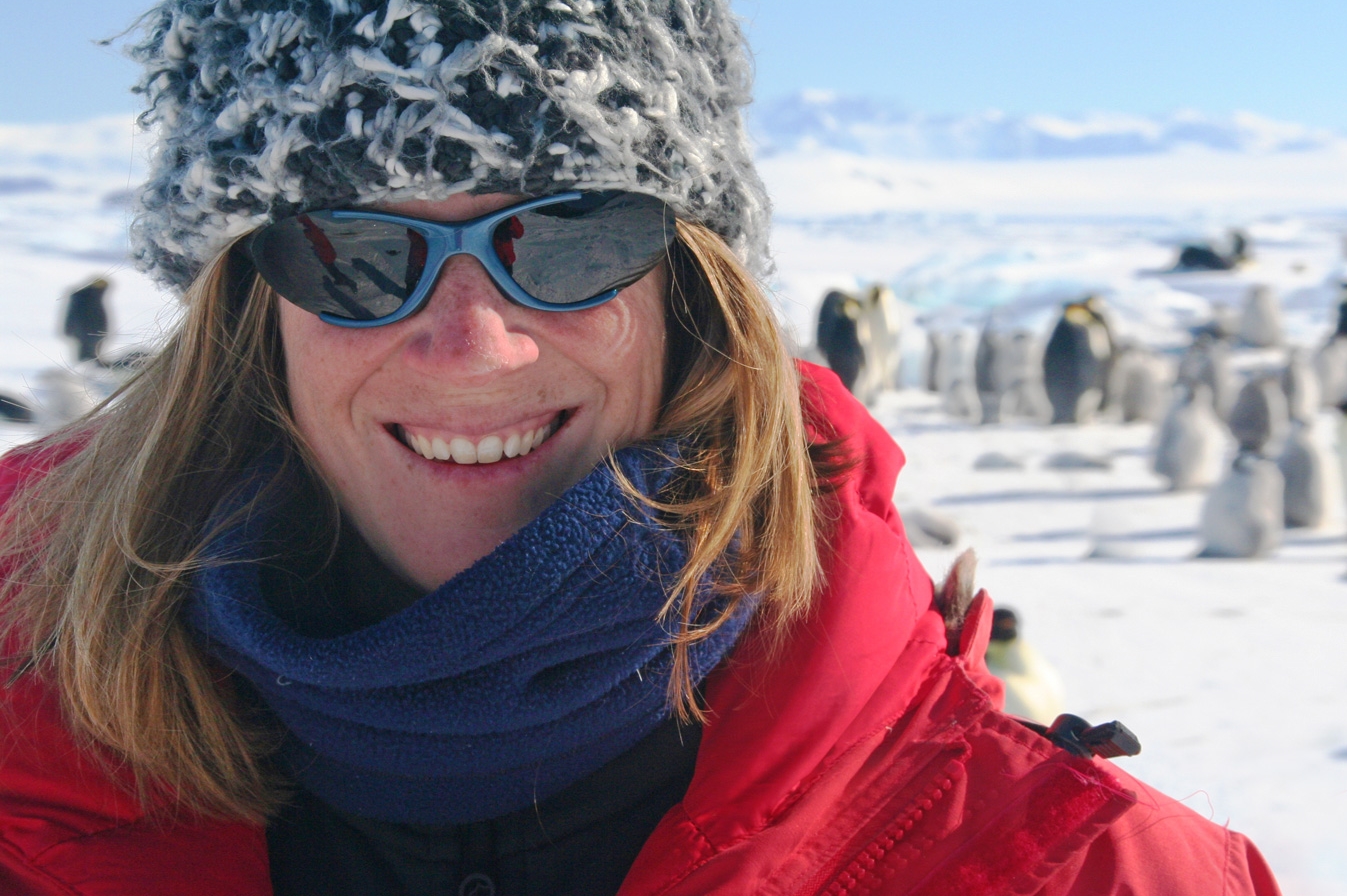Moss Landing's own Professor of Vertebrate Ecology, Dr. Gitte McDonald was featured recently on both NBC Bay Area and KTVU in her role as team leader for MLML's and New Zealand’s National Institute of Water and Atmospheric Research (NIWA)'s joint field research on emperor penguins in the Antarctic.
Funded in part by NSF, the researchers have braved -35°F temperatures to collect pivotal data on emperor penguin behavior in response to climate change. The team safely captures penguins using a "big hug" technique while they attach GPS-linked data logger, that can record the bird's position and actions using technology very similar to a Fitbit.
Because emperor penguins' heart rates dip to 20 beats per minute when diving below 400 meters (and sometimes as low as 8 bpm), such data loggers can give important information about how deep they dive for food. The accelerometer in the logger can also tell the team what action the penguin was taking, such as standing, swimming, or even tobogganing.
This research is only the start of a 5-year program, Ross Sea Region Research and Monitoring Programs (Ross-RAMP) that will provide valuable data on the effectiveness of the world's largest marine protected area, the Ross Sea MPA.
More information can be found at SJSU News Center.


